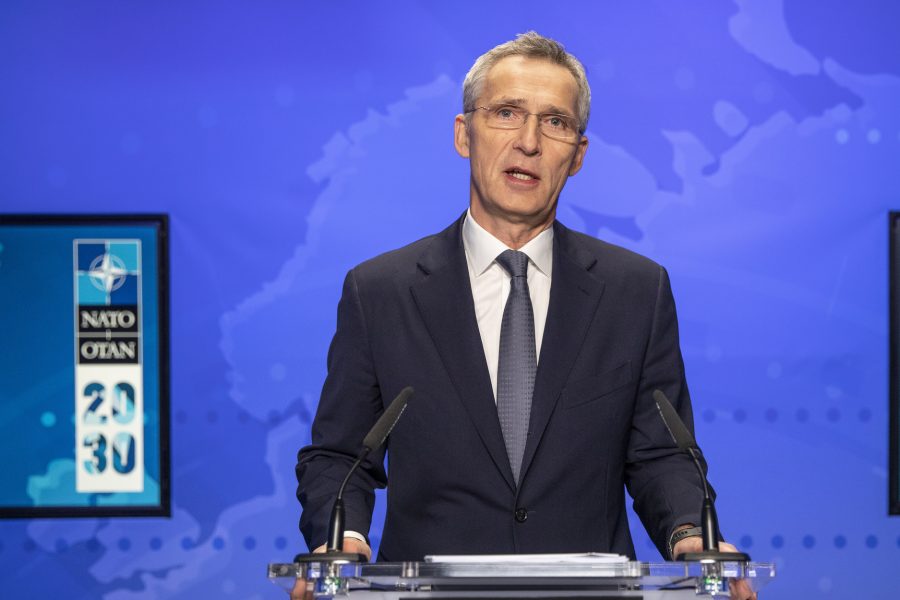NATO leaders will discuss the way ahead in Afghanistan during this week’s defense ministerial meeting, but a final decision on whether to stay or leave the country is not expected until February, NATO Secretary General Jens Stoltenberg said on Nov. 30.
Stoltenberg, speaking in advance of this week’s defense ministerial meetings in Brussels, acknowledged the United States’ decision to withdraw much of its forces, but said the alliance must remain coordinated and act in an “orderly way.” Stoltenberg said the Taliban is not holding up its end of the agreement announced in February, which calls for all NATO troops to leave by May 1.
“That’s the reason why we are now faced with a very clear decision, a very difficult choice to be made, which actually represents a dilemma for all of us,” Stoltenberg said in a press conference. “And that is either to stay, because we assess that [the] Taliban is not living up to their part of the agreement, not delivering on their promises. But then, of course, risk continued fighting long-term continued military involvement in Afghanistan. Or, to leave, but then risk jeopardizing the gains we have made in fighting international terrorism and preventing Afghanistan from being a platform for launching attacks against our countries.”
The Pentagon plans to draw down to about 2,500 forces inside Afghanistan by Jan. 15, 2021, from the current total of about 4,500, though Acting Defense Secretary Christopher C. Miller did not provide specifics on which troops would remain and which would be coming home.
Stoltenberg said there are about 11,000 NATO forces inside Afghanistan, including U.S. troops, with the rest from European NATO allies and partner nations. In addition to the personnel, NATO has committed to funding Afghan forces through 2024.
The announced U.S. withdrawal will “of course” reduce the American presence in the country, but NATO training missions will continue unabated at locations such as the German-led base in Mazar-e-Sharif, the Italian-led base in Herat, and NATO’s presence in Kabul, including the headquarters and the Turkish-led base at Hamid Karzai International Airport.
“The NATO Training Mission will continue and European NATO allies and partner nations have all stated clearly that they will continue to sustain their troop levels in Afghanistan,” Stoltenberg said.
Stoltenberg said the American forces will still “be able to deliver key enablers” for NATO, such as air transport, medical support, intelligence, and other missions.
Stoltenberg, who spoke with President-elect Joe Biden on Nov. 23, said he “underlined the importance of Afghanistan and I pointed out the dilemma we face that, of course, there is a price if we decide to stay, but there will also be a price if we decide to leave.”


